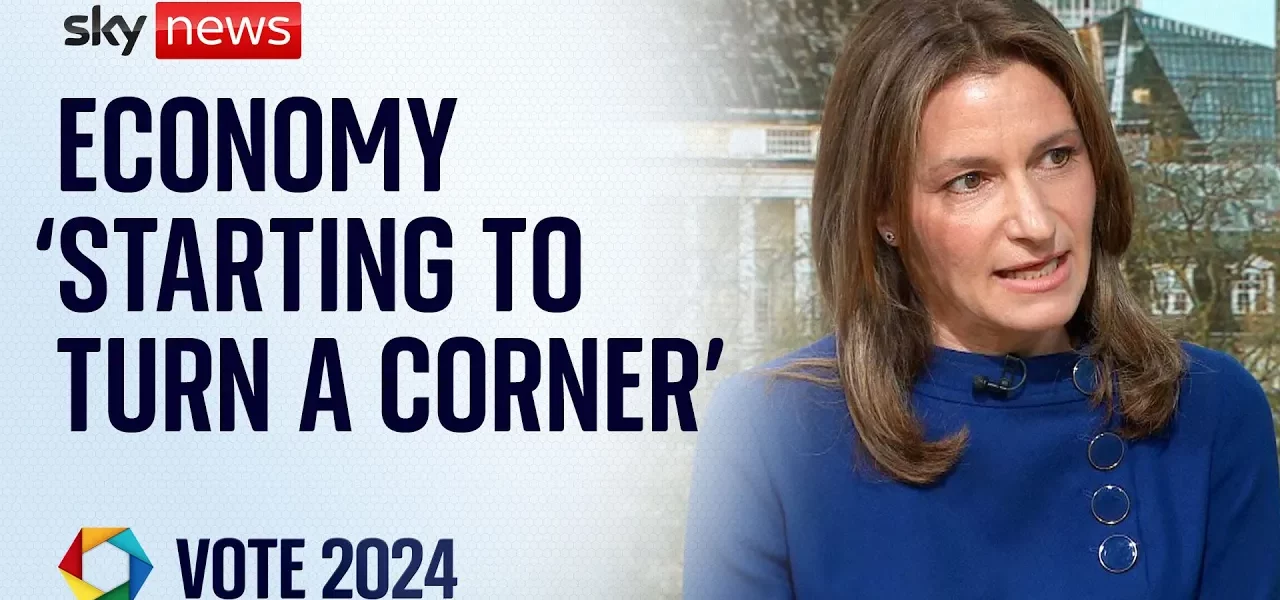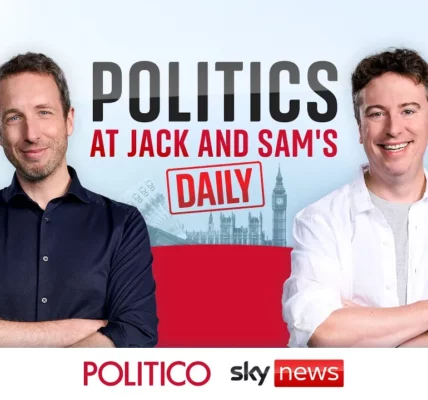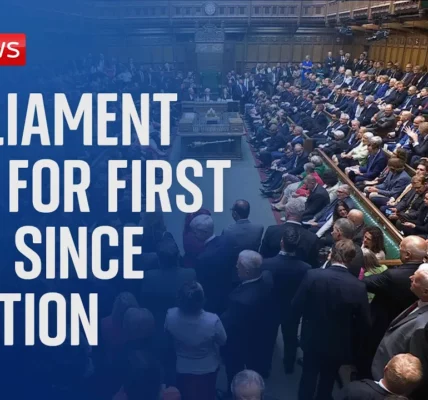Discussing the Conservative Party Manifesto with Lucy Fraser

In this article, we delve deep into the conversation with Lucy Fraser, the Secretary of State for Culture, Media and Sport, regarding the Conservative Party’s manifesto. We explore key points such as economic recovery, tax strategies, and the overarching narrative of the upcoming election.
Introduction
The Conservative Party’s manifesto is a pivotal document leading up to the election, outlining their vision for the future of the UK. In a recent discussion with Lucy Fraser, various aspects of this manifesto were explored, including the party’s claims of economic recovery, tax policies, and the challenges faced by the government. Fraser emphasized the narrative that has been built over the past 14 years, positioning the Conservatives as the party that turned around a struggling economy, especially in light of recent global challenges such as the COVID-19 pandemic and the energy crisis stemming from the war in Ukraine.
The Conservative Party’s Economic Narrative
According to Fraser, the Conservative Party has a compelling story to tell regarding their economic management over the past decade and a half. The narrative is built on several key points:
- Initial Economic Challenges: Inheriting a poorly managed economy from the previous Labour government.
- COVID-19 Response: Massive financial support to individuals and businesses during the pandemic, amounting to £400 billion.
- Recovery from Crisis: Faster recovery compared to other G7 nations post-pandemic.
- Current Economic Growth: Claims of ongoing economic growth and declining inflation rates.
Tax Policies and Their Implications
Fraser highlighted the Conservative Party’s commitment to tax cuts, a critical aspect of their manifesto. However, this claim has been met with skepticism due to the projected overall increase in the tax burden. Here are some key points regarding tax policies:
Tax Cuts vs. Tax Burden
Fraser argued that while the overall tax burden is expected to rise, specific tax cuts will benefit various groups:
- Tax cuts for employed individuals.
- National Insurance cuts.
- Tax relief for self-employed and pensioners.
- Commitment that the state pension will remain untaxed.
Challenges and Criticisms
Despite these promises, critics point out that taxes are still set to increase overall:
- Projected increase in tax burden despite individual tax cuts.
- Concerns about the credibility of the proposed tax savings.
- Public sentiment regarding high living costs and mortgage rates.
Fiscal Responsibility and Future Plans
Fraser emphasized the importance of fiscal responsibility in the Conservative manifesto. The discussion touched upon how the party plans to balance tax cuts with necessary government spending:
Cost-Saving Measures
The Conservative Party has proposed several approaches to save money and reduce the deficit:
- Increased funding for HMRC to tackle tax avoidance and evasion.
- Efficiency reviews of government quangos to save up to £1.2 billion annually.
- Reevaluation of the welfare budget, aiming to support those in need while ensuring accountability.
Public Perception and Trust
Fraser acknowledged the skepticism surrounding the feasibility of these plans, especially given the current economic climate. Public trust will be crucial for the Conservatives as they seek to implement their manifesto:
- Engaging with constituents to address their concerns directly.
- Providing transparency in financial projections and government spending.
- Demonstrating tangible results from previous economic policies.
Conclusion
The conversation with Lucy Fraser provided insights into the Conservative Party’s manifesto and their vision for the future of the UK. As the election approaches, the narrative of economic recovery and tax cuts will be central to their campaign. However, the challenges of public perception and the realities of economic management will play a significant role in shaping voters’ decisions. It is imperative for the party to maintain transparency and engage effectively with the electorate. For more information on political strategies and economic policies, visit our related articles on UK politics.
“`




